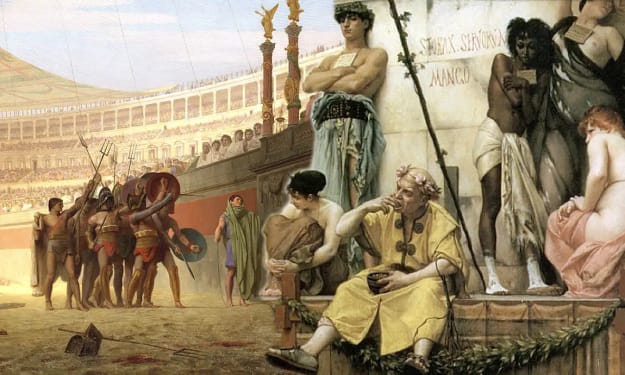
Egypt, often referred to as the "Gift of the Nile," is a country that owes its existence and prosperity to the mighty Nile River. Stretching over 4,000 miles through northeastern Africa, the Nile is the lifeblood of Egypt, providing water, fertile soil, transportation, and a source of livelihood for millions of people. It would not be an exaggeration to claim that without the Nile, Egypt would be nothing more than a vast, arid desert. In this essay, we will explore the indispensable role of the Nile River in shaping Egypt's history, culture, and economy, while examining the potentially dire consequences if this precious resource were to ever disappear.
First and foremost, the Nile River is the primary source of water for Egypt. It supplies the nation with a consistent and reliable flow of fresh water, which is essential for agriculture, domestic use, and industry. The annual inundation of the Nile, known as the "Nile Flood," deposits nutrient-rich silt along the riverbanks, rejuvenating the soil and making it incredibly fertile. This silt, combined with the regular water supply, allows for the cultivation of crops year-round, sustaining Egypt's agriculture. If the Nile were to vanish, the nation would face a severe water crisis, rendering its agricultural sector, which accounts for a significant portion of Egypt's economy, virtually nonviable. The absence of this essential water source would turn Egypt into an arid wasteland, making it almost impossible for its population to survive.
The importance of the Nile River in Egyptian agriculture cannot be overstated. It is a well-known fact that ancient Egypt, one of the world's earliest and most advanced civilizations, thrived because of the Nile's rich resources. The Nile provided the means for the ancient Egyptians to cultivate staple crops like wheat and barley, which formed the basis of their diet. It also enabled the growth of papyrus, a plant used for various purposes, including paper, boat construction, and more. This agricultural abundance allowed the Egyptians to focus on other pursuits, such as building the monumental pyramids, temples, and monuments that continue to fascinate the world today. Moreover, the river acted as a natural irrigation system, which eliminated the need for complex canal systems and allowed for more efficient water distribution to farmlands. Without the Nile, Egypt's agriculture would become unsustainable, leading to food scarcity, economic collapse, and social unrest.
The Nile River is not just a source of water; it is also a vital means of transportation. Historically, the Nile has served as a natural highway, facilitating the movement of people, goods, and ideas throughout Egypt. Boats and ships have plied the Nile's waters for thousands of years, making trade and communication between Upper and Lower Egypt more accessible. Without this waterway, Egypt would be significantly cut off from itself, hindering trade, travel, and, consequently, development. Moreover, the Nile Delta, where the river empties into the Mediterranean Sea, has served as a natural harbor, enabling trade with other Mediterranean civilizations. The river's importance as a transportation route cannot be overstated, and its absence would isolate Egypt, stifling its economic growth and cultural exchange with the outside world.
The Nile River has not only shaped Egypt's physical landscape but also its culture and history. The ancient Egyptians worshipped the Nile as a deity, viewing it as the source of life and prosperity. This reverence for the river is evident in the many myths, rituals, and temples dedicated to its spirit. The Nile's annual flood was seen as a divine event, marking the beginning of the agricultural season and ensuring the nation's survival. The famous historian Herodotus once said, "Egypt is the gift of the Nile," highlighting the deep cultural and spiritual connection between the river and its people. If the Nile were to disappear, it would not only have a profound ecological impact but also a spiritual one, severing a millennia-old link between the land and its inhabitants.
Furthermore, the Nile River has played a crucial role in the development of Egypt's modern economy. Today, it supports vital sectors such as agriculture, tourism, and industry. Egypt is the world's largest exporter of long-staple cotton, and the fertile Nile Delta is a major contributor to this industry. The river also sustains a significant portion of the country's population by providing fish, a primary protein source for many Egyptians. Moreover, the Nile's scenic beauty and its historical significance attract tourists from all over the world, contributing substantially to Egypt's economy. The riverbanks are dotted with ancient temples, monuments, and archaeological sites, making the Nile a vital component of Egypt's cultural heritage and a driver of its tourism industry.
The Nile River is also essential for the generation of hydroelectric power. The Aswan High Dam, constructed on the Nile in the 1960s, has been instrumental in electricity production for Egypt. It provides clean energy to meet the country's growing power demands and has helped reduce the need for fossil fuels, thus contributing to environmental sustainability.
Despite the Nile's unquestionable significance, it faces a multitude of threats today. Climate change, population growth, and industrial development are placing unprecedented pressure on the river. The construction of dams and water diversion projects upstream, particularly in Ethiopia, has raised concerns about water scarcity and the possible disruption of the Nile's flow into Egypt. If the Nile's water flow were to diminish significantly, Egypt would face an acute water shortage, leading to severe consequences for its agriculture, economy, and people.
Another issue threatening the Nile's future is pollution. The river is susceptible to contamination from urban and industrial runoff, as well as agricultural pesticides and fertilizers. These pollutants can harm aquatic life and degrade water quality, impacting the people who rely on the river for drinking water and fishing.
In conclusion, the Nile River is the lifeblood of Egypt, and without it, the country would indeed be a desert. This great river provides water, fertile soil, transportation, and cultural significance that are irreplaceable. Egypt's history, culture, and economy are deeply entwined with the Nile, and its absence would be nothing short of catastrophic. It is imperative for the international community and the nations sharing the Nile's waters to come together to ensure the sustainable management of this precious resource. Only through responsible stewardship can we ensure that the Nile continues to flow, nourishing the land and people of Egypt, just as it has for millennia. The Nile's importance extends far beyond Egypt's borders; it is a global treasure that must be protected for future generations. Without a doubt, the Nile River is the heart and soul of Egypt, and it must continue to beat for the prosperity of the nation and the world.
About the Creator
Elias
Reading serves as a gateway to knowledge, offering a vast universe of ideas, information, and inspiration waiting to be explored. It is a powerful tool that opens doors, ignites curiosity, and fuels personal and intellectual growth.






Comments
There are no comments for this story
Be the first to respond and start the conversation.